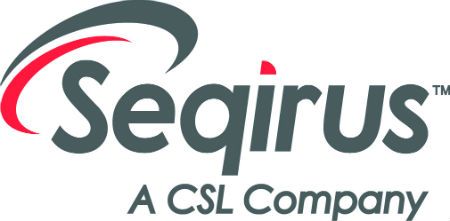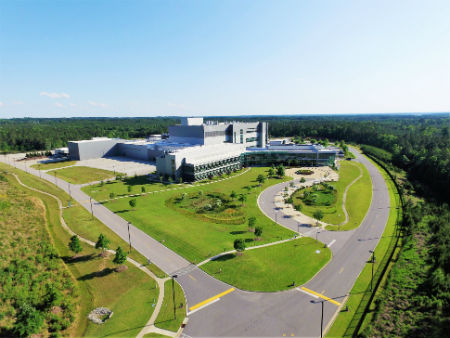
Seqirus Begins Delivery of Vaccines for 2021-2022 Flu Season

With most of the world currently focused on the rapid spread of the Delta variant of COVID-19, we shouldn’t forget that flu season also is just around the corner.
That fact hasn’t escaped Seqirus, one of the largest influenza companies on the globe. The company has just begun to ship its portfolio of seasonal flu vaccines to healthcare providers across the United States. It said it is prepared to supply approximately 60 million doses to meet demand for the 2021-2022 flu season.
Seqirus, which has a massive manufacturing facility southeast of Raleigh in Holly Springs, produces a portfolio of flu vaccines for people of all ages – from children as young as six months old to adults 65 and up. The company also has plants in the United Kingdom and Australia. It uses egg, cell and adjuvant technologies. The cell-based process replaces traditional egg-based manufacturing by growing influenza viruses in cells rather than eggs.
Seqirus is the lone global vaccine company focused solely on influenza. Its products include:
- FLUCEVAX QUADRIVANENT, the only cell-based quadrivalent influenza vaccine for children two years old and older. Quadrivalent vaccines work by stimulating an immune response against four different antigens. FLUCEVAX currently is under review by the U.S. Food and Drug Administration for use in children as young as six months.
- FLUAD QUADRIVALENT, the only adjuvanted quadrivalent seasonal vaccine for adults 65 and older. Adjuvant vaccine components increase efficiency by improving immune response.
- And AFLURIA QUADRIVALENT, an egg-based quadrivalent influenza vaccine approved for use in people six months and older.

“Despite the immeasurable ways the world has changed in the last year, our mission for the upcoming influenza season hasn’t faltered,” said David Ross, vice president of North America commercial operations at Seqirus. “We are driven by our commitment to deliver safe and effective influenza vaccines to as many eligible people as possible, including vulnerable groups like young children and adults 65 years or older.”
Flu season normally begins in late fall and peaks in mid to late winter. So the U.S. Centers for Disease Control and Prevention recommends that most people six months old and older get vaccinated by the end of October. The agency reported there were an estimated 400,000 influenza-related hospitalizations and 6,300 deaths in the U.S. during the 2019-2020 flu season.
“A continued focus on influenza vaccination is critically important because, while rates of influenza were generally low last season, we cannot assume this will be the case during the coming year and we need to be prepared,” said Gregg Sylvester, M.D., chief medical officer at Seqirus. “We know influenza vaccination can save lives and is an important step we can take to help protect ourselves, our loved ones and our communities.
Seqirus in North Carolina
Seqirus was formed in 2015 after its Australian parent, CSL Ltd., purchased the former Novartis full-scale cell culture vaccine-manufacturing site in Holly Springs and the related technology. The facility was originally designed to increase production of flu shots in response to outbreaks or a pandemic.
The North Carolina Biotechnology Center was actively involved in recruiting the manufacturing center, which is located on 185 acres and incorporates seven buildings connected to a central corridor. It encompasses 475,000 square feet – an area equal in size to about 10 football fields.
Seqirus has close to 900 employees at the Holly Springs complex and 3,300 worldwide, with a commercial presence in 20 countries. Its parent company, CSL, is headquartered in Melbourne, Australia, and has a workforce of close to 20,000 people in more than 60 countries.
